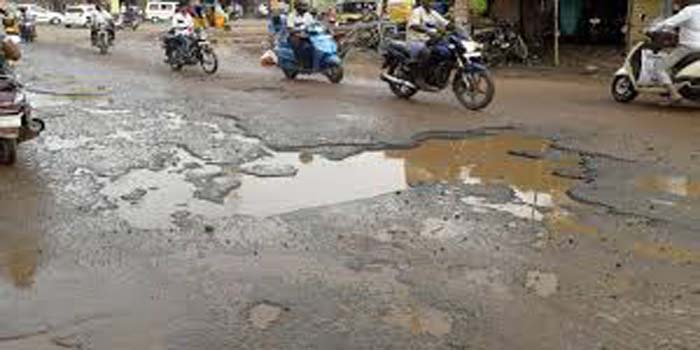Agra, the crown jewel of India’s tourism sector, is marred by a shameful reality that continues to fester beneath the surface – its deplorable road conditions. As the monsoon season wreaks havoc on the city, the wounds and scars of negligence are laid bare for all to see. Despite the impending new tourist season, the oblivious city administration remains indifferent to the urgent need for road repairs and maintenance, turning a blind eye to the safety hazards and aesthetic blight that plague the streets.
Tourism industry leaders, the lifeblood of Agra’s economy, are sounding the alarm bells at the shocking lack of concern and apathy exhibited by those responsible for upholding civic standards in the city.
Social activist Dr Devashish Bhattacharya says “visitors, especially those hailing from the developed world, arrive in Agra only to be met with a landscape of desolation and decay. The once majestic allure of the city is eclipsed by the sorry state of its infrastructure, leading to disillusionment and hasty departures by disillusioned tourists.”
The city administration’s feeble attempts at patching up potholes and claiming completion of road repairs have been mercilessly exposed by the relentless downpour of the monsoon. A prime example of this neglect is the disgraceful sight of a road leading to the upscale Dayalbagh area, which has succumbed to the forces of nature, caving in under the weight of neglect and incompetence.
It is a travesty that a city so rich in history and cultural heritage has allowed its very foundations – its roads – to crumble and decay to such a deplorable state.
Lok Swar president Rajiv Gupta says, ” The arteries of Agra, meant to connect it to the world and facilitate the flow of commerce and tourism, now stand as a grim reminder of governmental inadequacy and disregard for the well-being of its citizens and visitors alike.”
River activist Chaturbhuj Tiwari adds, “The implications of these woeful road conditions extend far beyond mere inconvenience.
They pose a serious threat to public safety, as potholes and uneven surfaces transform everyday commutes into perilous adventures.”
The risk of accidents and injuries looms large over residents and tourists alike, highlighting the utter negligence of those entrusted with the upkeep of essential infrastructure.
The impact on the tourism industry, Agra’s economic lifeline, cannot be overstated. As visitors recoil in horror at the sight of battered roads and dilapidated infrastructure, their enthusiasm wanes, and their stays are cut short. The promise of a rich cultural experience is tarnished by the harsh reality of navigating treacherous roads, leading to a rapid decline in tourist footfall and a devastating blow to local businesses and livelihoods.
It is time for the city administration to awaken from its slumber of indifference and heed the cries of its citizens and stakeholders. Agra’s roads are not just a physical network of pathways; they are the lifeline of a city that thrives on the influx of visitors and the vibrancy of its tourism industry. To neglect them is to betray the legacy of a city steeped in history and grandeur.
As the monsoon bares the wounds and scars of Agra’s infrastructure, it is a stark reminder of the urgent need for action. Repairing and maintaining the roads is not just a matter of aesthetics; it is a moral imperative, a duty owed to the city and its people. The time for excuses and half-hearted measures has long passed, feels advocate Rahul Raj.
Activist Padmini Iyer says “Agra deserves better, its roads demand better – lest they drag the city into a pit of irreparable decay and despair.”





